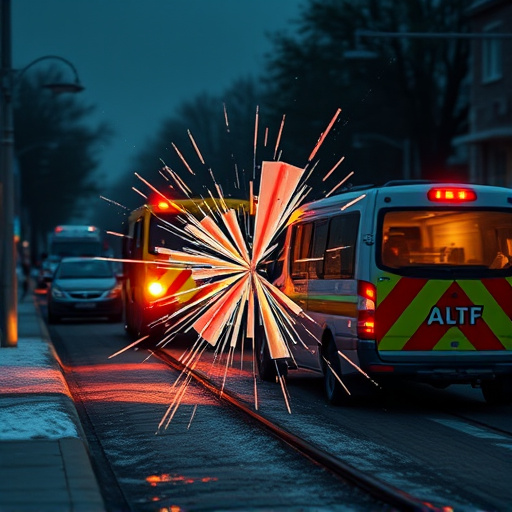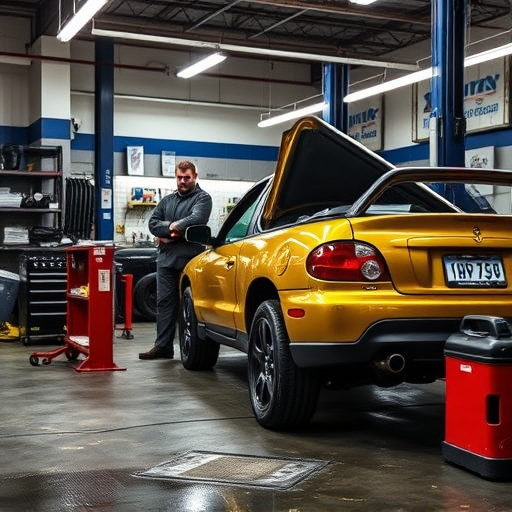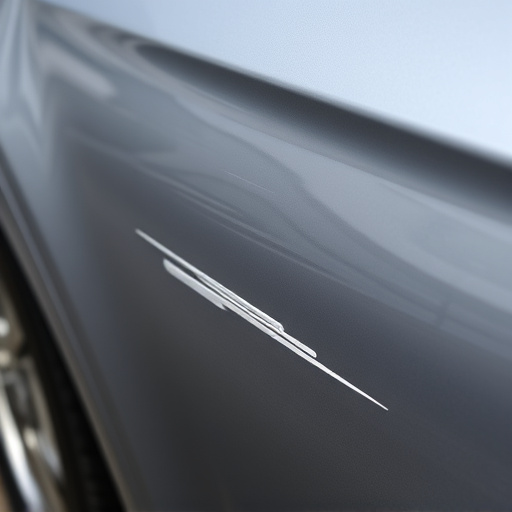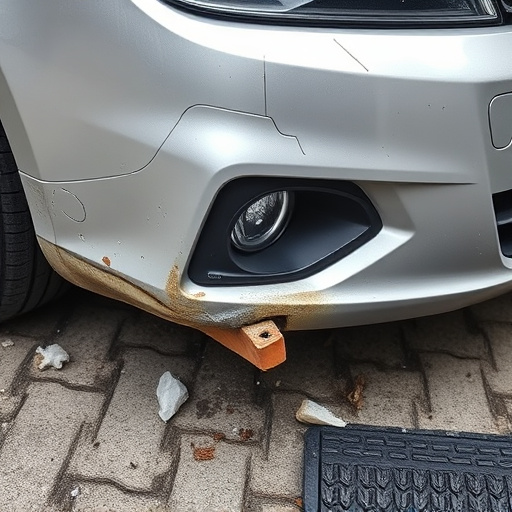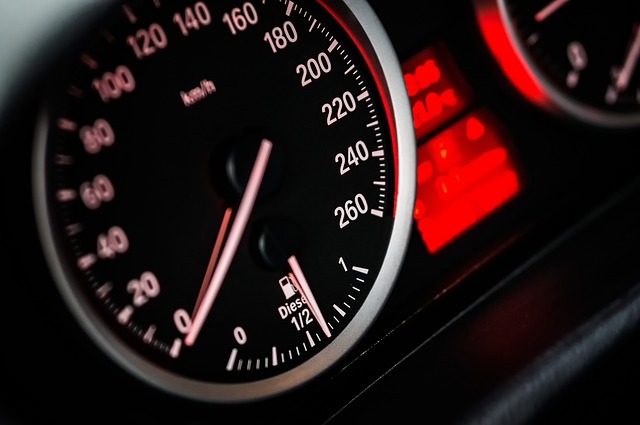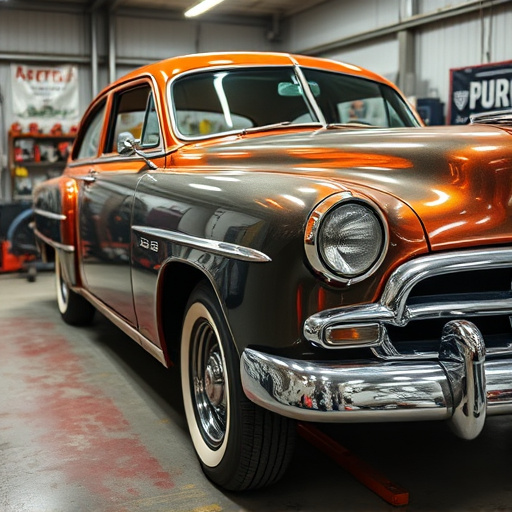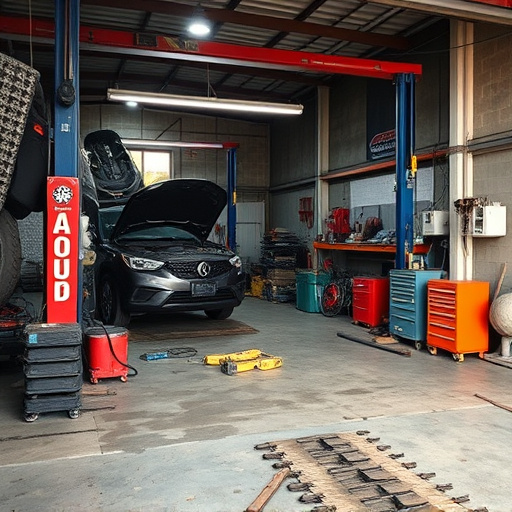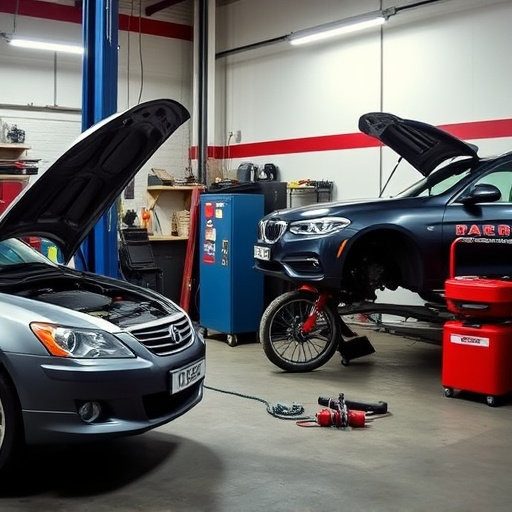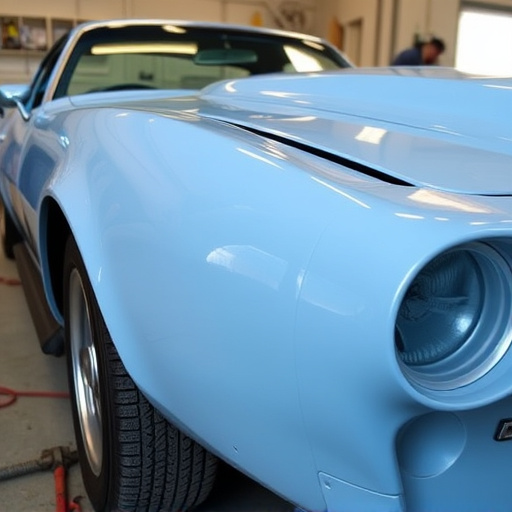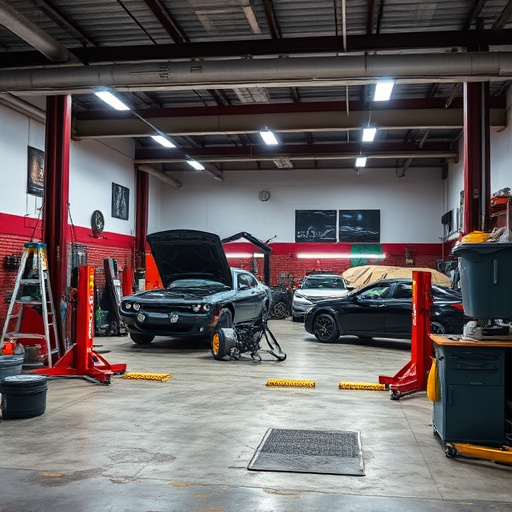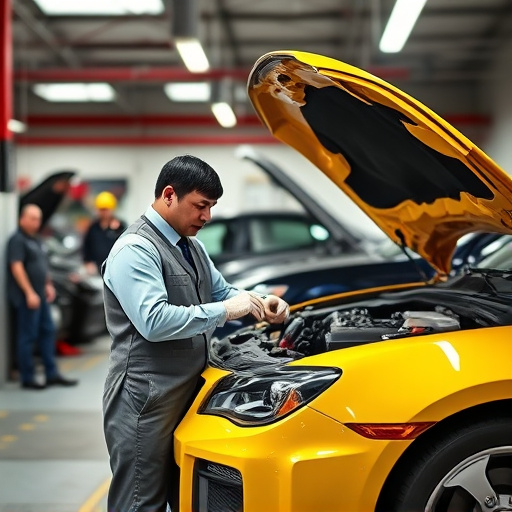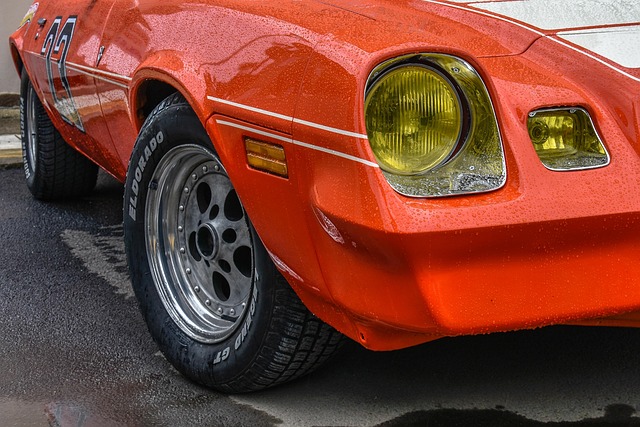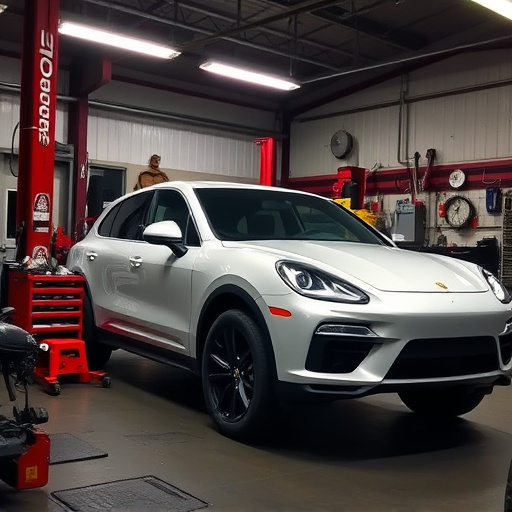Repair quality measurements are essential in collision work, ensuring superior vehicle restoration through precise standards and advanced tools. These metrics guarantee structural integrity, aesthetic appeal, and safety, enhancing client satisfaction and boosting shop reputation. Standardized evaluations enable workshops to improve performance, maintain consistency, and make informed decisions, ultimately promoting excellence in collision repair.
In today’s competitive automotive industry, ensuring superior repair quality is paramount to winning customer trust. Repair quality measurements play a pivotal role in collision work, enabling workshops to consistently deliver top-tier results. This article delves into the significance of these measurements, exploring how they impact customer satisfaction and drive workshop performance. By understanding and implementing consistent metrics, businesses can enhance their reputation, foster client loyalty, and thrive in an increasingly competitive market.
- Understanding Repair Quality Measurements in Collision Work
- The Impact of Precise Measurements on Customer Satisfaction
- Implementing Consistent Metrics for Better Workshop Performance
Understanding Repair Quality Measurements in Collision Work
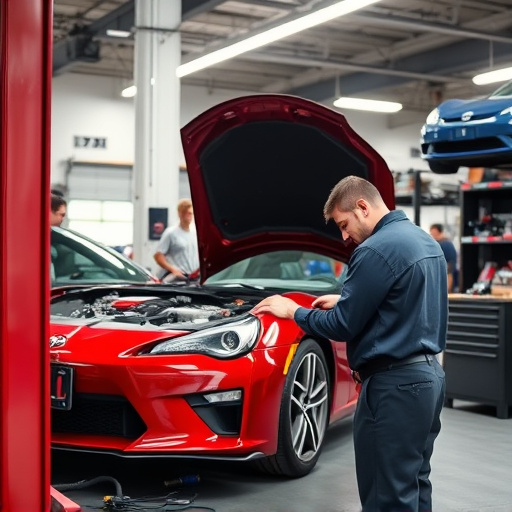
In the realm of collision work, understanding repair quality measurements is paramount to ensuring top-tier vehicle restoration. These measurements go beyond mere visual inspection, delving into precise standards and specifications that guarantee a car’s structural integrity and aesthetic appeal. By employing advanced techniques and tools, professionals can assess every aspect, from frame alignment to paint accuracy, ensuring each Mercedes Benz repair or any automotive restoration meets or exceeds industry benchmarks.
The significance of these measurements is evident in the meticulous process of car restoration. They facilitate the accurate replication of original factory standards, ensuring vehicles not only look but also perform like new. Moreover, rigorous quality checks contribute to enhancing safety, preventing future issues, and preserving the value of restored automobiles, be it a Mercedes Benz or any other make undergoing automotive restoration.
The Impact of Precise Measurements on Customer Satisfaction
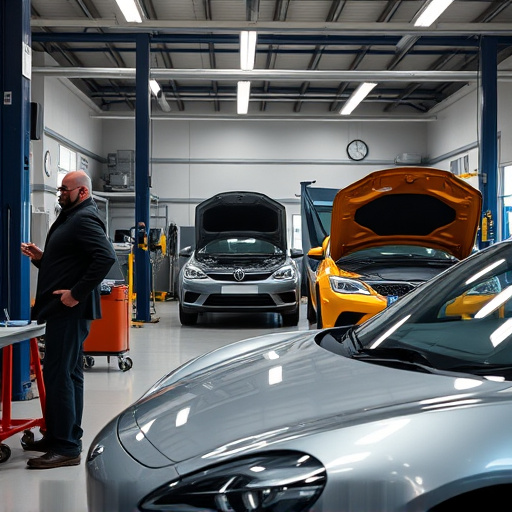
In the realm of collision work, precise repair quality measurements play a pivotal role in fostering customer satisfaction. When a vehicle undergoes auto body repair or car dent repair services in a body shop, the outcome significantly influences how delighted the client is with the final result. Accurate measurements ensure that every detail, from panel alignment to paint consistency, meets the highest standards. This meticulous approach not only enhances the visual appeal of the restored vehicle but also ensures its structural integrity, giving owners peace of mind while on the road.
Moreover, repair quality measurements enable body shop services to consistently deliver top-notch work. By implementing these practices, shops can identify and rectify issues early in the repair process, preventing subpar outcomes that could lead to customer complaints or necessitate further repairs. This attention to detail not only boosts client satisfaction but also strengthens the reputation of the shop, solidifying its position as a reliable provider of auto body repair services.
Implementing Consistent Metrics for Better Workshop Performance
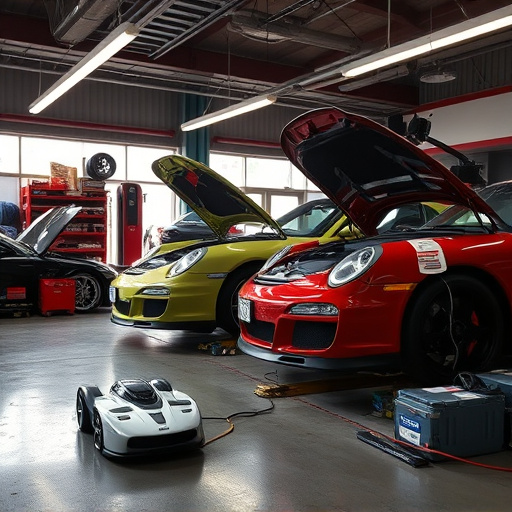
In the realm of collision work, implementing consistent metrics for repair quality measurements is a game-changer. It enables workshops to objectively assess their performance, identifying areas that need improvement and those excelling. These standardized metrics, tailored to various aspects like dent removal and vehicle body repair, ensure consistency across different collision repair shops. By comparing results against set benchmarks, businesses can make data-driven decisions, enhancing overall efficiency.
Such practices foster a culture of excellence in collision repair. When workshops regularly track their progress using these repair quality measurements, they can quickly respond to any deviations from the expected standards. This proactive approach not only ensures superior customer satisfaction but also contributes to the longevity and safety of vehicles, making it a crucial aspect for any successful collision repair shop.
Repair quality measurements are indispensable in collision work, ensuring customer satisfaction and workshop performance. By understanding the impact of precise metrics, implementing consistent standards, and adopting best practices, auto body shops can deliver high-quality repairs that meet customer expectations. Investing in robust repair quality measurements is a key strategy for workshops to stand out in a competitive market and build long-lasting client relationships.
